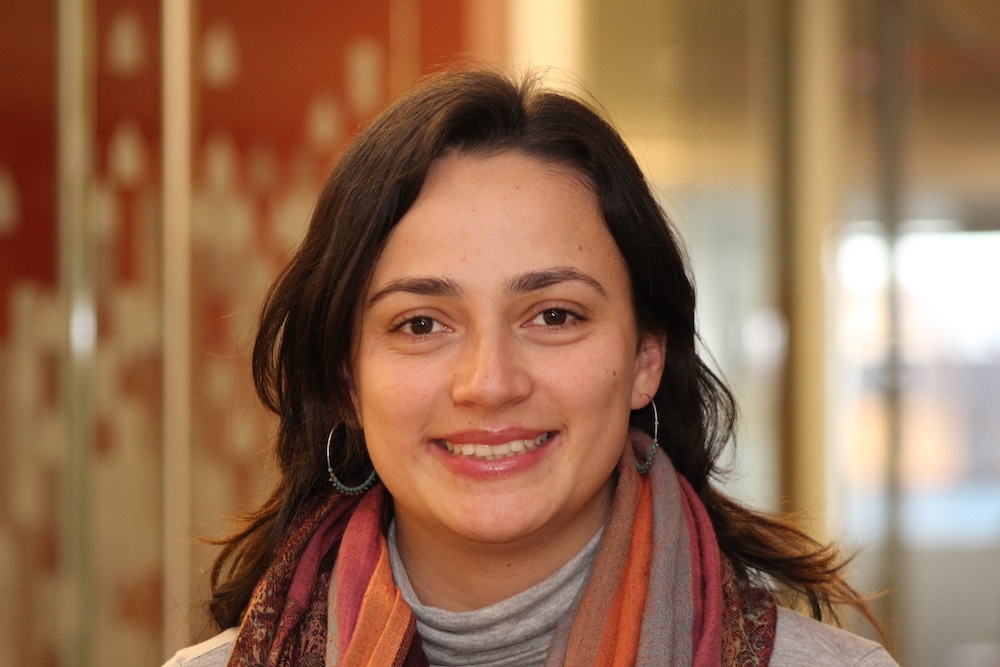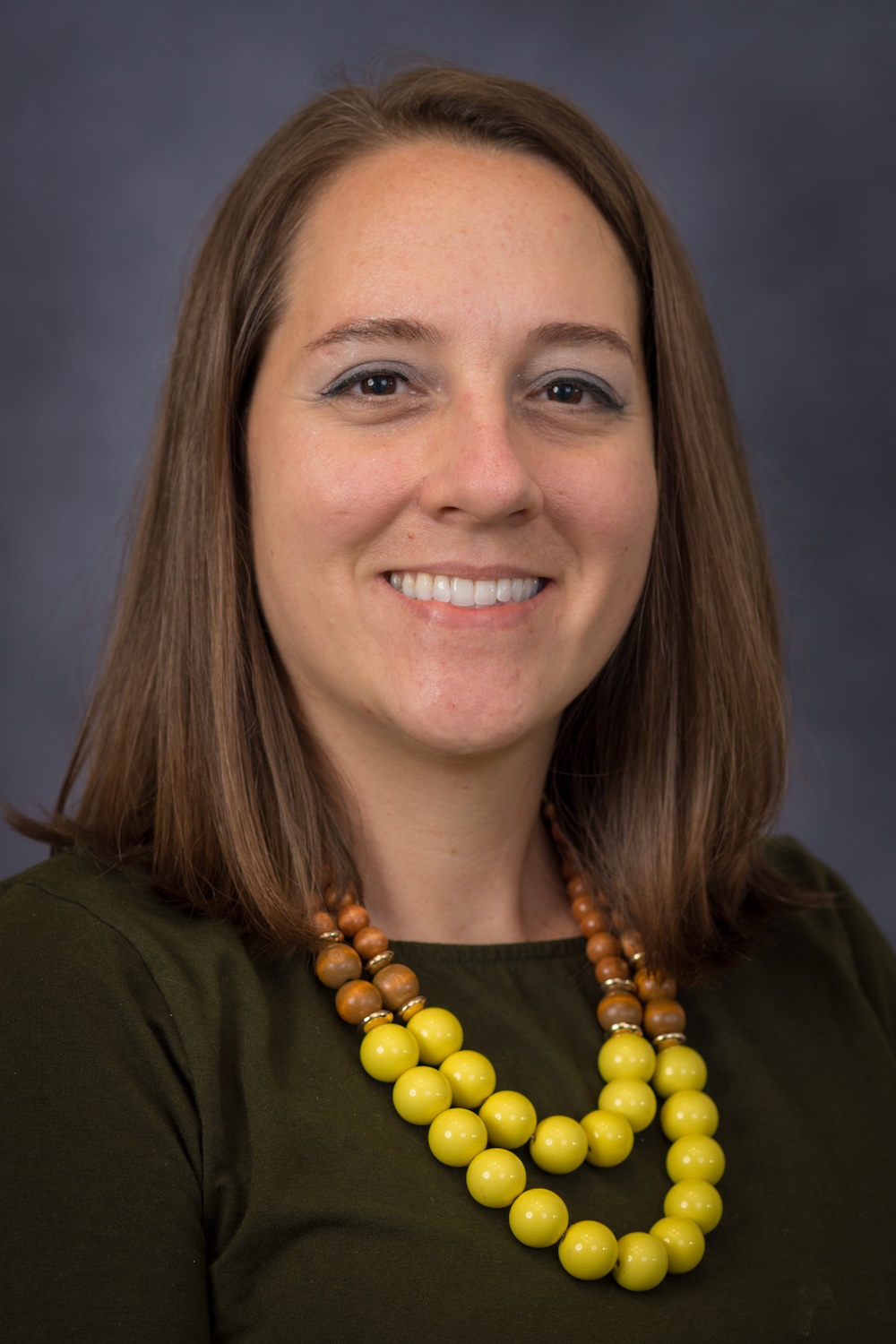In summer of 2022, when NeighborWorks America established a grant to support NeighborWorks network organizations with wealth-building programs for Black and Latino clients, there was one big change: The application was available in Spanish. Not only that, but network organizations were able, if they chose, to submit their grant application in Spanish and have it reviewed by a native speaker.

Ospina Jaramillo conducted the initial research, talking to organizations in Puerto Rico. "We learned a lot," she says. "We wanted to hear from people who were seeing the customers and if they were able to express themselves better in Spanish."
Molly Barackman-Eder, director of financial capability, added that the decision was an important new frontier for NeighborWorks. "It's meant to open up doors and to make people more comfortable and confident."
The grant itself, distributed to 18 network organizations, provides funds for programming to address

The idea started with Joanie Straussman Brandon, regional vice president of NeighborWorks' Northeast Region, during a brown bag lunch conversation about equitable grantmaking. She says that some network organizations, particularly those in Puerto Rico, truly shined when staff were able to talk about their programs in their native language. She wanted to see if NeighborWorks, which holds race, equity, diversity and inclusion as a key tenet of its strategic plan, could make that possible.
In English, some of the grant applications don't always convey the full extent of the merit of the organization and its programming, Straussman Brandon explains. "When they describe their programs in Spanish, their true richness is so much clearer and more easily captures the nuances."
Creating the application
To create the application, NeighborWorks engaged a translation company. Ospina Jaramillo then worked to "translate the translation," making sure that it flowed well and would be read correctly by applicants.
"There was a lot of back and forth," says Ospina Jaramillo, who had other NeighborWorks employees check the questions to make sure they were readable. She even had her sister, who was not familiar with the terminology of financial capability, read through to test the translation quality.
"This would not have been possible without Laura's ability to go back and forth, making people feel welcome and included," Barackman-Eder shares. "It was important to have a bilingual staff member available to do quality assurance. And we were committed to having any applications submitted in Spanish reviewed by native speakers."
Ospina Jaramillo talked by phone to a number of applicants during the process, serving as support. "It may have opened the door for more participation," Barackman-Eder says. "We're committed to working with the NeighborWorks network to include and elevate bilingual staff. This application started a lot of conversations toward that."
How the grants will help
The grants went to organizations to help build three cohorts. The culturally specific asset building cohort will implement culturally specific products and strategies, such as a customized financial capability curriculum for Black and/or Latino customers, lending circles for a specific population, and affordable financial products to build savings or achieve homeownership. Organizations may also support culturally specific approaches with strategies like hiring and retaining Black and/or Latino staff members, maintaining robust partnerships with organizations that serve these communities, offering bilingual services catering to the needs of a specific community and addressing the financial concerns of Individual Taxpayer Identification Number (ITIN) holders, Barackman-Eder says. As an example, she mentioned the Primavera Foundation, which is exploring the impact of their Mis Abuelitos, a multi-generational financial capability program for grandparents raising grandchildren.
Another cohort will address rent reporting for credit building. Barackman-Eder says six organizations are members of this cohort, exploring opportunities and barriers to integrating financial coaching with rent reporting for credit building. Examples here, she says, are Mid-City Redevelopment Alliance and The Neighbor Project, who help customers register for rent reporting for credit building with their landlord to improve their credit scores for home purchase. Previously, she says, NeighborWorks' experience has only been with network organizations providing the service to their own tenants and not through third-party landlords.
And finally, members of the third cohort will study what makes an effective small-dollar loan program. Participants are also looking at the role of financial coaching in these programs and how it impacts customers' success. Here, Barackman-Eder uses as an example CHDC, which has a loan program that helps people make a down payment or cover closing costs to purchase a home.
The 'why'
"Everything helps," says Yunuen Tavares Cordoba, community lending lead and loan officer at Community LendingWorks. "It was a surprise to me to see how many people we have who are Spanish speaking and are afraid to ask for help if they don't find someone who knows their language."
Because she is bilingual, Tavares Cordoba is able to help loan applicants at her own place of business feel more comfortable, and she is certain that the availability of a NeighborWorks grant application in Spanish is comforting to organizations where Spanish is the predominant language. It helps with trust, she says.
"When I work with clients, I want them to feel trust and confidence. When you get information about resources in your own language, that helps embolden the community. They can feel they are being taken into consideration. They can feel counted."
About 60% of her clients speak English, she estimates. The other 40% speak mostly Spanish or Russian.
NeighborWorks America is committed to creating more opportunities for equity when it comes to the grant process. Toward that end, the national nonprofit formed an equitable grantmaking steering committee in early 2022. There are 19 members comprising staff from across the Field Operations Division with representation from National Initiatives and Evaluations/Assessment, Leadership & Peer Learning. The committee is responsible for coming up with a definition of equitable grantmaking for NeighborWorks, identifying strategies and practices that support this definition, and exploring how NeighborWorks might more deeply embed equity in its grantmaking.
"I feel this work is important for NeighborWorks because it is a great way for us to demonstrate our commitment on achieving greater equity with our grantmaking," shares Ramona Johnson, senior relationship manager in the Southern Region and a committee member.
The committee plans to engage the larger NeighborWorks network as they present their findings and preliminary ideas in the coming year.

